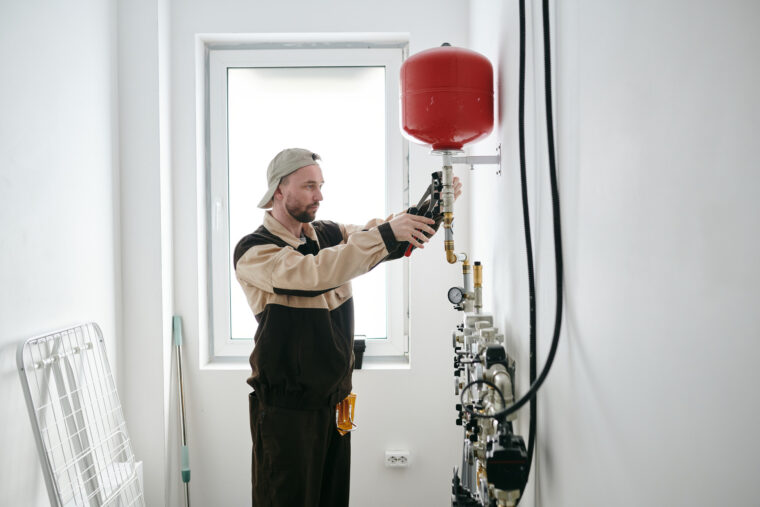5 Common Problems with Hot Water Systems and How to Fix Them

Reliable hot water systems are indispensable in our daily lives, providing comfort and convenience for various household tasks. Unfortunately, just like any complex appliance, hot water systems can run into problems over time. Understanding these issues and their fixes can save you from unexpected cold showers and costly repairs. In this article, we’ll discuss five common problems with hot water systems and provide practical solutions to tackle them effectively.
1. No Hot Water
Possible Causes
One of the most frustrating issues is when your hot water system stops producing hot water altogether. This could be due to several reasons, including:
– Thermostat Issues: The thermostat might be set too low or be faulty.
– Pilot Light Out (Gas Systems): For gas water heaters, the pilot light may have gone out.
– Heating Element Failure (Electric Systems): In electric water heaters, a broken heating element might be the culprit.
Solutions
- Check the Thermostat: Ensure that the thermostat is set to an appropriate temperature, typically between 60-65 degrees Celsius (140-150 degrees Fahrenheit).
- Relight the Pilot Light: If the pilot light is out, refer to your system’s manual for instructions on how to relight it safely.
- Replace Heating Elements: For electric systems, shut off the power and water supply before removing and replacing the faulty heating element.
2. Inadequate Hot Water
Possible Causes
Sometimes, the water heater produces hot water, but not enough to meet your household’s demand. This could be due to:
– Tank Size: The tank may be too small for your household needs.
– Sediment Build-Up: Accumulation of sediment at the bottom of the tank can reduce its capacity.
– Thermostat Settings: Incorrect thermostat settings or malfunctioning thermostats can cause this issue.
Solutions
- Evaluate Your Needs: If you consistently run out of hot water, consider upgrading to a larger tank or a tankless system.
- Flush the Tank: Periodically flush your hot water system to remove sediment build-up.
- Check Thermostat Settings: Ensure they are set correctly and replace the thermostat if it’s not functioning.
3. Discolored Water
Possible Causes
Discolored water, often rust-colored, can be alarming. The primary causes include:
– Corroded Anode Rod: The anode rod, which prevents tank corrosion, may be worn out.
– Sediment and Rust: Accumulation of sediment and rust inside the tank.
Solutions
- Replace the Anode Rod: Check the condition of the anode rod regularly and replace it if it appears corroded.
- Flush the Tank: Performing a tank flush can help get rid of accumulated rust and sediment.
4. Strange Noises
Possible Causes
Odd noises such as popping, banging, or hissing emanating from your hot water system can indicate various issues, including:
– Sediment Build-Up: Sediment at the bottom of the tank can cause popping or banging sounds as water heats up.
– Heating Element Issues: In electric systems, a faulty heating element can cause hissing noises.
Solutions
- Flush the Tank: Regularly flushing your water heater tank can minimize sediment build-up and reduce noise.
- Inspect and Replace Heating Elements: If you suspect the heating element, have it inspected and replaced if necessary.
5. Leaking Water Heater
Possible Causes
A leaking water heater can lead to significant damage if not addressed swiftly. Common causes include:
– Loose Connections: Pipes and connections may be loose or not properly sealed.
– Tank Issues: Internal tank corrosion or cracks might be causing leaks.
– Faulty Valves: Pressure relief valves may be malfunctioning.
Solutions
- Tighten Connections: Inspect all connections and tighten any that appear loose.
- Repair or Replace the Tank: If the tank itself is the issue, you might need professional assistance to repair or replace it.
- Check and Replace Valves: Regularly check the pressure relief valve and replace it if it’s faulty to prevent leaks.
Importance of Regular Maintenance
Regular maintenance of your hot water system can prevent many of these issues from arising. Simple tasks such as flushing the tank annually, inspecting the anode rod, and checking the thermostat settings can extend the life of your system and ensure it operates efficiently.
Conclusion
Understanding the common problems associated even with top-notch hot water systems and knowing how to address them can save you time, money, and inconvenience. Always follow the manufacturer’s guidelines for maintenance and repairs, and seek professional help when necessary.
